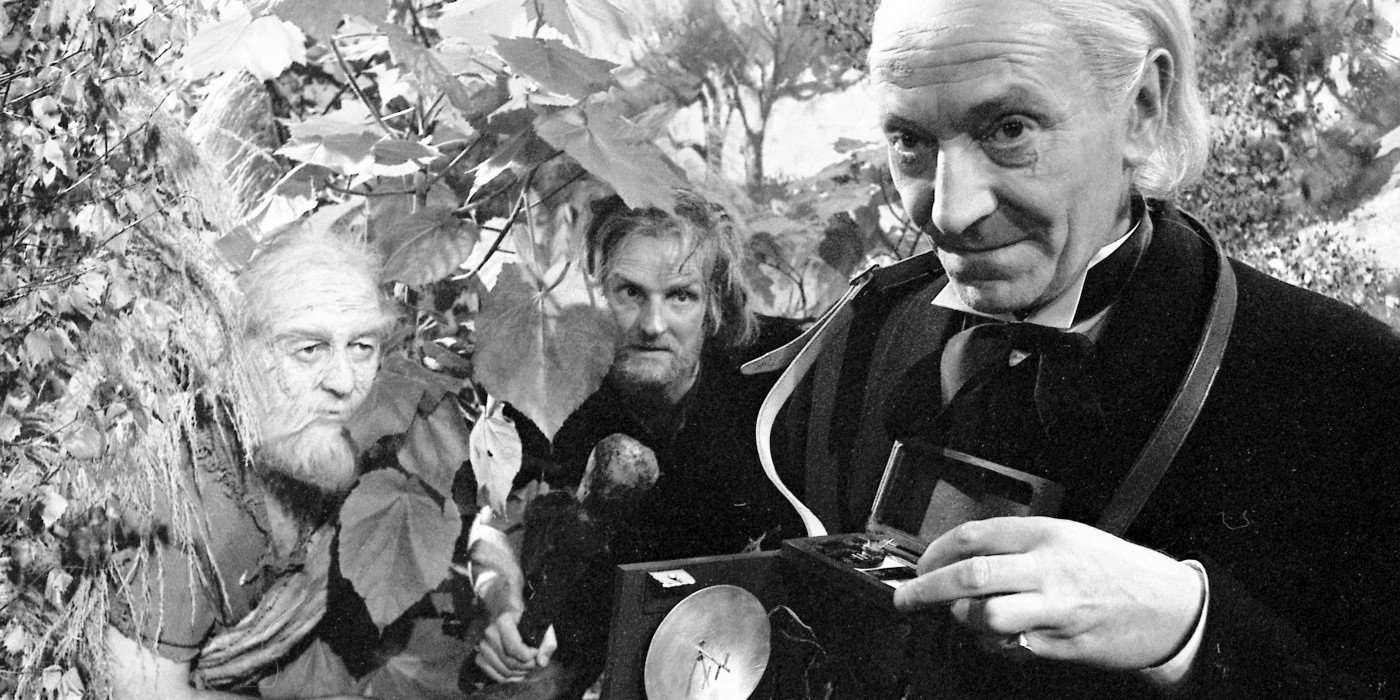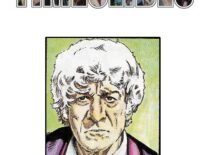When most people think about the William Hartnell era of Doctor Who, they usually gravitate towards perhaps the first ever story, the first Dalek story, or perhaps his last story. If they’re going a little deeper, they’ll hit one of the other Dalek serials, perhaps a curiosity like The Gunfighters. Rarely do people go over deep cut stories, and especially not one of the several that are missing. But that’s what I wanted to talk about — one of the missing ones, The Savages.
Aired from 28th May to 18th June 1966, this is one where all four episodes are gone. We have a handful of telesnaps to get by with. They’re the source of the reconstruction which is what I watched when I got to this story in my “watch every episode of Doctor Who” project. Because it was a missing story, I didn’t know much about it. In fact, watching reconstructions brings its own challenges as they can frequently be not that good, either from the fact that it’s hard to know what’s going on when the main focus is just audio, or the particular reconstruction isn’t as strong because there aren’t as many pictures here, but this one wasn’t like that. I found that I really enjoyed this story, and really REALLY wanted the thing to exist so I can see it properly, but I can’t.
Spoilers follow…

It’s a very modern-thinking story where two societies inhabit a planet; one is exploiting the other, and the TARDIS crew get in the middle of it. The two “races” are called the Elders and the Savages. The Doctor is initially well respected by the Elders — they massage his ego, and he’s admiring their culture. Steven and Dodo get separated from the Doctor (huge shock there), and they do some exploring.
We learn more about the elders: they maintain their healthy life by literally draining the life force from the “Savages”, leaving them either dead, or severely incapacitated. Once the Doctor learns this is happening, he’s quite aghast and tries to stop the proceedings. In doing that, the Elders realise that the Doctor is of greater intelligence than the savages were, so they decide to put the Doctor in the draining machine, thinking it would give them a massive power boost.

After the Doctor is in the machine, he’s severely affected by the energy drain at which point the elders think they can get more energy from Dodo and Steven, so they are hunted by the elders. The hunt takes up most of Episode 3, and Hartnell is barely in it – this could have been one his famed vacation episodes, but the Doctor, plot wise, was really out of it.

In the last episode, the Savages help Dodo, Steven, and the Doctor. An amusing thing happens to Jano, the leader of the Elders. He has altered due to the draining of the Doctor; he starts acting like the Doctor and immediately realises that what they’re doing is immoral, and assists in destroying the transference machine. There’s a funny scene (I assume) towards the end that shows people destroying the machinery. I get the impression that must have been fun to film, the intentional destruction of the set like that.

There are a few visual shots I would have loved to have seen. Besides the aforementioned destruction of the machine, there was a scene from the start of Episode 1 with spears being thrown at the TARDIS while Dodo and Steven escape. But of course the thing I would have liked to have seen most is the departure of Steven Taylor. He leaves the show at the end of Episode 4. We do have a super short clip of this scene via a fan-filmed 8mm film extract. But it’s not the same as seeing the real sequence.

This doesn’t seem like the kind of story that early ’60s Doctor Who would have pulled off, but this reconstruction left me intrigued and wanting to see more. While I’d be really surprised if this were ever recovered, I hope some day to see it animated at least.
In the past, I could never call this one of my favorites, but this rewatch changed my opinion for sure.

One small postscript. From a production standpoint, this was the first story ever not to have individual episode titles. It was The Savages Episode 1, 2, etc… vs the way it had been up until this point where each specific episode had its own title.


